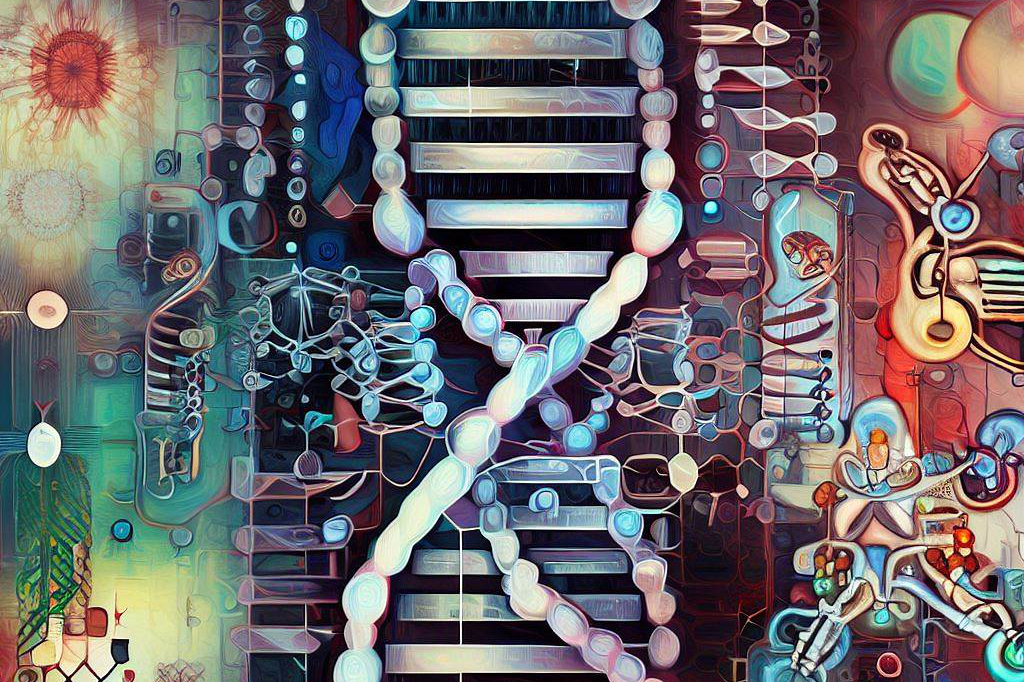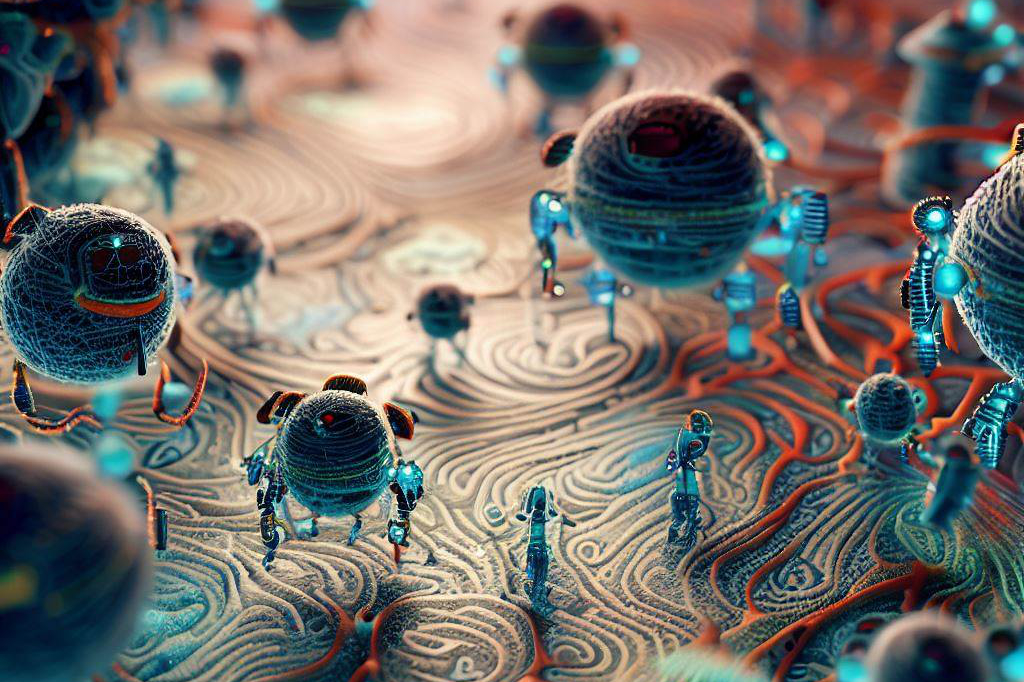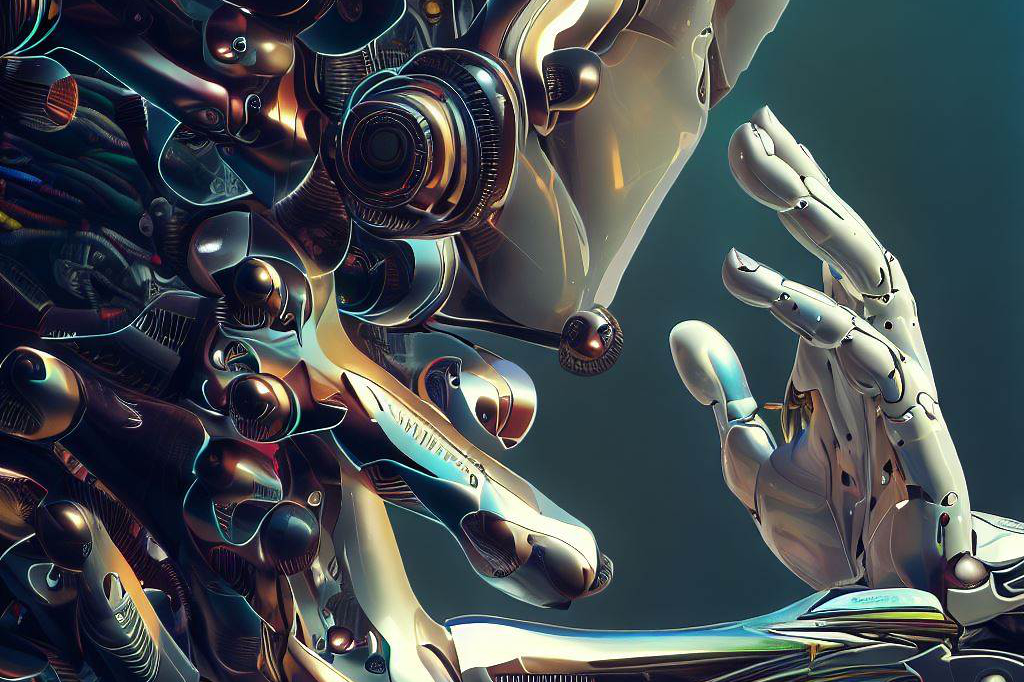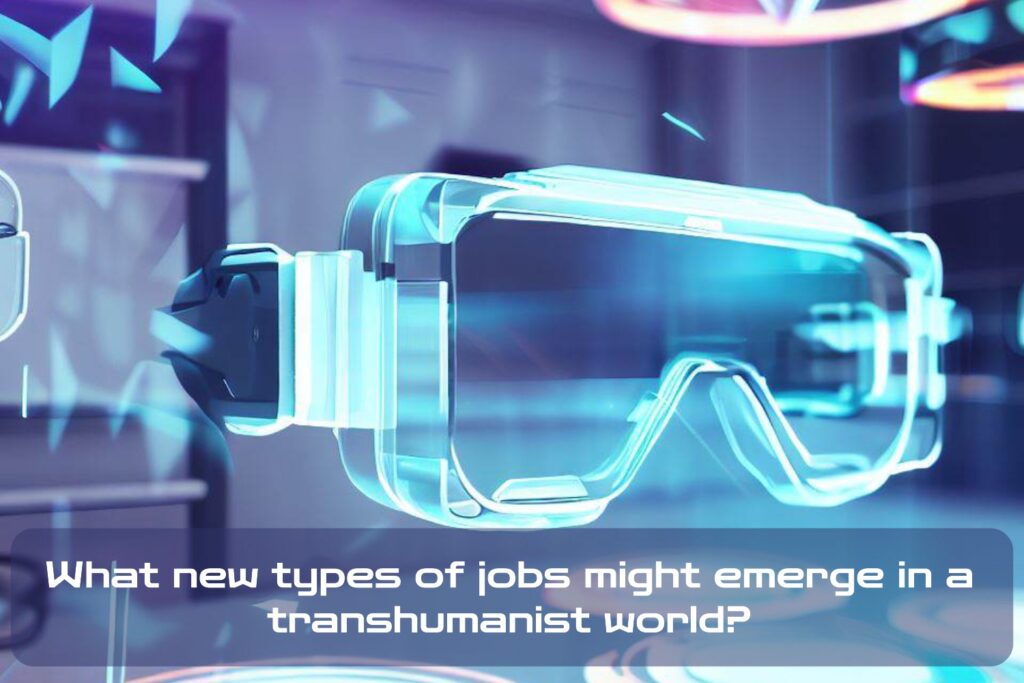Transhumanism is a philosophical and cultural movement that advocates for the use of technology to enhance human abilities and extend lifespans. Its adherents believe that humanity can overcome biological limitations through advancements in science and technology, which could enable us to transcend our current existence and achieve greater levels of intelligence, creativity, and well-being. As such, transhumanism represents a radical vision of the future, one where humanity has become something more than what we are today.
The implications of transhumanism are vast and complex.
On the one hand, it offers the promise of overcoming many diseases and disabilities that afflict us today.
On the other hand, it raises questions about what it means to be human and whether we should be tampering with our biology in this way.
Whatever your perspective on these issues may be, there is no denying that they will have profound implications for how we live our lives in the future.
Explanation of Transhumanism

Transhumanism is based on the idea that humans can use science and technology to transcend their biological limitations. This could involve anything from using gene editing techniques to eliminate genetic diseases or designing nanobots to repair damaged tissues in the body.
It may also involve implanting electronic devices like cochlear implants or bionic limbs to enhance sensory or motor abilities. At its core, transhumanism is about enhancing human capabilities beyond what nature has provided us with through evolution alone.
This could include boosting intelligence through brain-computer interfaces or extending lifespans through anti-aging treatments. The ultimate goal is to create a post-human society where we have transcended our current biological limitations entirely.
New Job Types in a Transhumanist World
As advancements continue towards creating a transhumanist world, new job types will inevitably emerge. These jobs will require specialized skills and expertise that may not exist in our current job market.
It is therefore important to begin considering what these new jobs may be and how we can prepare for them. Furthermore, the emergence of new jobs in a transhumanist world will have significant implications for the economy.
The rise of automation and artificial intelligence has already disrupted many traditional industries, leading to job losses and economic uncertainty. The same is likely to happen as transhumanism becomes more prevalent.
However, it also presents an opportunity to create new economic sectors that did not previously exist. Discussing the potential new job types in a transhumanist world is crucial for preparing ourselves for the future.
It allows us to begin thinking about what skills and knowledge we may need to acquire in order to succeed in a changing job market. Moreover, it provides insight into how we can leverage technology to create new opportunities for ourselves and others.
Jobs that will emerge due to technological advancements

Augmented Reality Developer: Bridging the Gap Between Reality and Virtuality
Advancements in augmented reality (AR) technology are rapidly changing the way we interact with our surroundings. With AR, computer-generated images can be superimposed onto the real world, creating an immersive experience for users. As AR continues to evolve, it’s likely that more businesses and industries will want to incorporate this technology into their operations.
This is where an augmented reality developer comes in. An augmented reality developer would be responsible for designing and developing AR applications that enhance user experiences.
They would need a strong background in computer science, programming languages such as C++ and Java, as well as experience with software development kits (SDKs) such as Apple ARKit or Google ARCore. They must also be creative problem-solvers who can think outside of the box to create engaging and seamless experiences for users.
Gene Editing Specialist: Manipulating Life at the Molecular Level
One of the most exciting areas of technological advancement today is gene editing. With tools like CRISPR-Cas9, scientists can now edit genes with a precision never before possible.
As gene editing becomes more refined and widespread, new job opportunities will emerge in this field. A gene editing specialist would be responsible for using tools like CRISPR-Cas9 to manipulate genes in living organisms – from humans to plants or animals – at a molecular level.
In addition to having a strong background in biology, they must also have experience working with genetic engineering tools and techniques. Ethical considerations are especially important in this field because it raises questions about human enhancement versus natural evolution.
Nanobot Designer: Building Machines on a Microscopic Scale
Nanotechnology involves working with materials at incredibly small scales – typically between one nanometer (10^-9 meters) and 100 nanometers. As nanotech advances, new jobs will emerge in the field of nanobot design. A nanobot designer would be responsible for designing and building tiny machines that could perform specific tasks at the molecular level.
These machines could be used in a variety of industries, such as medicine or environmental remediation. Nanobot designers need a deep understanding of physics, chemistry, and materials science – as well as expertise in computer modeling and simulation.
Cyborg Technician: Merging Man with Machine

As technology continues to advance, it’s likely that more people will choose to enhance their bodies with cybernetic implants – devices that merge man with machine. To support this growing trend, new job opportunities will arise for those who specialize in cyborg technologies. A cyborg technician would be responsible for installing, maintaining, and repairing cybernetic implants in human beings.
They must have a strong background in electronics engineering as well as familiarity with anatomy and physiology. Cyborg technicians must also have excellent communication skills since they will need to work closely with patients to ensure optimal functioning of their implants.
Jobs that will emerge due to physical enhancements

Personalized Health Coach
As humans continue to augment their bodies through technology, there will be a growing need for experts who can help people navigate the changes. A personalized health coach would work with clients to understand their unique physical and technological enhancements, as well as their fitness and nutrition needs.
They would develop customized plans that incorporate both traditional and modern approaches to maintaining optimal health. One of the primary roles of a personalized health coach would be to help clients monitor the effects of their enhancements on their overall well-being.
This could include tracking biometric data from implanted devices or providing guidance on how to incorporate new technologies into existing fitness routines. Personalized health coaches would also need expertise in gene editing and bioengineering so they could stay up-to-date on the latest advancements in these areas.
Body Modification Artist

As transhumanism becomes more widely accepted, there will likely be an increase in demand for cosmetic procedures that go beyond what is currently possible with traditional plastic surgery. Body modification artists would specialize in creating these enhancements using cutting-edge techniques such as gene editing, nanotechnology, and cybernetics.
The role of a body modification artist goes beyond simply performing procedures; they must also consult with clients to help them decide what modifications are right for them based on their personal goals and values. They must also have knowledge of engineering principles so they can design implants that are safe, effective, and aesthetically pleasing.
Mind-Body Integration Specialist

Transhumanist enhancements aren’t just physical – there are also cognitive augmentations such as brain-machine interfaces (BMIs) which allow individuals to control machines or communicate telepathically with others. Mind-body integration specialists would help people integrate these technologies into their lives by teaching them how to use BMIs effectively while minimizing potential side effects.
Mind-body integration specialists would work with clients to develop personalized training plans to help them learn how to use their BMIs. They would also need expertise in neuroscience so they could understand the risks and benefits of these technologies.
Additionally, they would need to be able to communicate effectively with clients who may have varying levels of technological literacy. Overall, as transhumanist advancements continue to emerge, so will new job roles.
These professionals will be tasked with helping individuals navigate a brave new world that is both exciting and daunting. The field of physical enhancement in particular will require a wide range of experts who can help individuals achieve their goals while keeping safety and well-being top-of-mind.
Jobs that will emerge due to ethical considerations

AI Ethics Consultant: Navigating the Ethical Issues Surrounding Artificial Intelligence
As advancements in artificial intelligence continue to accelerate, so do concerns over the ethical implications of this technology. AI ethics consultants will play a crucial role in helping individuals and organizations navigate these complex issues. They will be responsible for ensuring that AI systems are designed and implemented in ways that are consistent with human values and moral principles.
The job of an AI ethics consultant is multifaceted. They may work with developers to ensure that algorithms are unbiased and do not perpetuate discrimination or inequality.
They may also advise companies on how to use AI in ways that respect user privacy and autonomy. In addition, they may help policymakers develop regulations that promote responsible AI development and use.
Transhuman Rights Advocate: Defending Human Rights in an Age of Transhumanism

As technology continues to merge with biology, new questions arise about what it means to be human. Transhuman rights advocates will be at the forefront of these debates, working to ensure that individuals who choose to enhance their physical or cognitive abilities through technology are not subject to discrimination or marginalization. Transhuman rights advocates may work with policymakers, lobbying for legal protections for those who choose to enhance themselves through technology.
They may also collaborate with medical professionals and scientists, advocating for research into safe and effective enhancement technologies. In addition, they may work with marginalized communities (such as people living with disabilities) to ensure that technological enhancements are available equitably across all populations.
Cybersecurity Expert: Protecting Humanity from Cyber Threats

As we become increasingly reliant on technology, cybersecurity has become a pressing concern. Cybersecurity experts will play a critical role in protecting individuals and organizations from cyber threats such as hacking, identity theft, and cyberbullying.
Cybersecurity experts may work with companies to develop secure software and network systems. They may also monitor networks for suspicious activity and investigate any breaches that occur.
In addition, they may work with law enforcement to identify and prosecute cybercriminals. While cybersecurity has always been an important field, the rise of transhumanism brings new challenges.
As individuals increasingly merge with technology, the risk of cyber attacks becomes more personal – hackers could potentially gain control over a person’s enhanced limbs or brain implants. Cybersecurity experts will need to stay ahead of these emerging threats in order to protect the safety and privacy of individuals in a transhumanist world.
Jobs that will emerge due to space exploration and colonization
Spacecraft Designer and Engineer: Pushing the Frontiers of Space Travel

As humanity progresses towards more ambitious space missions, spacecraft designers and engineers will play a crucial role in ensuring the feasibility and success of space travel. These experts will need to be versed in a wide variety of technologies, including propulsion systems, life support systems, radiation shielding, navigation systems, and materials science.
They will also need to be able to work under challenging conditions with tight deadlines. There’s no doubt that these professionals have their work cut out for them.
With the new generation of moon landers set to be designed for increased resiliency and sustainability over extended periods of time, spacecraft designers must keep up with rapidly advancing technology while developing innovative solutions for problems an astronaut might face on long-duration missions. Spacecraft designer-engineers are responsible for pushing technological frontiers in space travel by creating innovative designs that can withstand harsh environments over prolonged durations.
Space Tour Guide: Bringing Space Tourism to Life

With an increasing demand for civilian trips into orbit, a new type of job is emerging- one with significant potential as a lucrative industry. The role of the Space Tour Guide is critical; they are responsible for leading tourists through every step of their journey into the final frontier. Space tour guides would prepare astronauts-in-training before launching them into suborbital flights or longer journeys on private or commercial spacecraft.
They would educate them about operations aboard the vehicle as well as provide historical context about orbital operations. Overall, space tour guides should have excellent communication skills along with deep knowledge about orbital mechanics since they’ll serve as astronauts’ primary point-of-contact throughout their voyage.
Planetary Geologist: Discovering New Worlds

As humans continue exploring different planets or moons within our solar system – and eventually beyond- planetary geologists will be vital in unlocking the secrets of celestial bodies. Planetary geologists are responsible for studying the structure, composition, and history of planets, including rock samples from their surfaces.
This profession requires not only a deep understanding of geological principles but also expertise in a wide range of scientific disciplines such as chemistry, physics, biology, and space science. Planetary geologists will work both on Earth and on-site at other planets or moons that humans explore.
These experts will collect soil samples and study them in labs to yield crucial information about the planet they are exploring. The knowledge gained by planetary geologists can help us understand how our solar system was formed.
With space exploration comes tremendous opportunities for discovery. Planetary scientists play an essential role in mapping out our universe’s terrain – helping us understand what makes each planet unique while simultaneously expanding our understanding of the cosmos as a whole.
Final Thoughts
The emergence of new job types in a transhumanist world has the potential to significantly impact the economy. With more people working in science, technology, engineering, and mathematics (STEM) fields, there will be an increased demand for skilled laborers and higher-paying tech-sector jobs.
Additionally, as society becomes more integrated with technology and biology, there may be opportunities for entrepreneurs to start new businesses that cater specifically to this market. As we move toward space exploration and colonization, there will also be opportunities for companies involved in aerospace engineering or space tourism.
The Importance of Preparing for the Future Job Market in a Transhumanist World
As we have seen from history, time after time – advances in technology can completely change entire industries or even displace them entirely. The examples are numerous: printing press replacing scribes; computers replacing typewriters; mobile phones replacing landlines etc. Therefore, it’s crucial that people start preparing themselves now for this inevitable shift towards a transhumanist world by developing the skills required by the emerging fields.
While some may view these developments with skepticism or fear, the reality is that a transhumanist future has the potential to drastically improve our lives and open up new opportunities. By preparing for these changes now, we can ensure that we are well-equipped to thrive in a world where technology and biology are more integrated than ever before.
FAQs: What new types of jobs might emerge in a transhumanist world?
1. What is a transhumanist world?
– A transhumanist world refers to a future society where humans have significantly enhanced their physical and cognitive abilities through the integration of advanced technologies.
2. How might transhumanism impact the job market?
– Transhumanism has the potential to introduce new types of jobs as it expands the boundaries of human capabilities. While some existing jobs may become obsolete, new opportunities will arise to meet the demands of this technologically advanced era.
3. What are some jobs that could emerge in a transhumanist world?
– Transhumanism opens up possibilities for various innovative job roles. Here are some potential jobs that might emerge in a transhumanist world:
– Neuroimplant Technician: Professionals who specialize in installing, maintaining, and upgrading neuroimplants, which enhance cognitive abilities and memory.
– Genetic Engineer: Experts who manipulate and modify human genes to enhance physical traits, such as strength, endurance, or resistance to diseases.
– Virtual Reality Architect: Individuals who design and create immersive virtual environments for entertainment, education, or therapeutic purposes.
– Robotic Surgeon: Skilled surgeons who perform complex surgeries using robotic systems with enhanced precision and dexterity.
– Augmented Reality Designer: Designers who create augmented reality interfaces and experiences, blending virtual elements with the real world.
4. Will there still be traditional jobs in a transhumanist world?
– Yes, traditional jobs will likely still exist in a transhumanist world, albeit with some changes. While automation and AI may replace certain repetitive or mundane tasks, many industries will continue to require human involvement and expertise. Additionally, some individuals may choose not to adopt transhumanist enhancements, and thus traditional jobs will remain relevant for them.
5. How might transhumanism affect the education sector?
– Transhumanism will undoubtedly have a profound impact on education. Here are a few ways it might influence the education sector:
– Specialized Transhumanist Programs: Educational institutions may offer specialized programs to train individuals in transhumanist technologies, such as neuroengineering, genetic manipulation, or virtual reality design.
– Adaptation of Curriculum: Schools and universities may need to adapt their curricula to incorporate transhumanist concepts, ethics, and considerations.
– Lifelong Learning: With the rapid advancements in transhumanist technologies, individuals may need to engage in continuous learning throughout their lives to stay updated and relevant in their respective fields.
– Ethical and Philosophical Discussions: Transhumanism raises various ethical and philosophical questions. The education sector may play a crucial role in fostering discussions and critical thinking around these topics.
Remember, the above questions and answers are purely speculative, based on the assumption of a transhumanist world. The emergence of specific jobs will depend on the trajectory of technological advancements and societal acceptance of transhumanist principles.
TL;DR…
– 🔍 Explanation of Transhumanism
– 💼 New Job Types in a Transhumanist World
– 🌐 Jobs that will emerge due to technological advancements
– 🕶️ Augmented Reality Developer: Bridging the Gap Between Reality and Virtuality
– 🔬 Gene Editing Specialist: Manipulating Life at the Molecular Level
– 🤖 Nanobot Designer: Building Machines on a Microscopic Scale
– 🧑🔧 Cyborg Technician: Merging Man with Machine
– 💪 Jobs that will emerge due to physical enhancements
– 🏋️ Personalized Health Coach
– 🎨 Body Modification Artist
– 🧠 Mind-Body Integration Specialist
– 🌐 Jobs that will emerge due to ethical considerations
– 🤖 AI Ethics Consultant: Navigating the Ethical Issues Surrounding Artificial Intelligence
– 👥 Transhuman Rights Advocate: Defending Human Rights in an Age of Transhumanism
– 🔒 Cybersecurity Expert: Protecting Humanity from Cyber Threats
– 🚀 Jobs that will emerge due to space exploration and colonization
– 🚀 Spacecraft Designer and Engineer: Pushing the Frontiers of Space Travel
– 🌌 Space Tour Guide: Bringing Space Tourism to Life
– 🌍 Planetary Geologist: Discovering New Worlds
– 💡 The Importance of Preparing for the Future Job Market in a Transhumanist World

C M, a seasoned editor, journalist, and consultant, is deeply fascinated by the convergence of technology, space, and the future of humanity.
With a particular interest in transhumanism, futurology, and the philosophical and ethical dimensions of these domains, C M serves as the lead contributor to TranscendSphere and SpaceSpotlight.
When not penning insightful articles on these rapidly evolving fields, C M indulges in their love for podcasts and books, proudly embracing their status as a ‘Happy Nerd Extraordinaire!’





